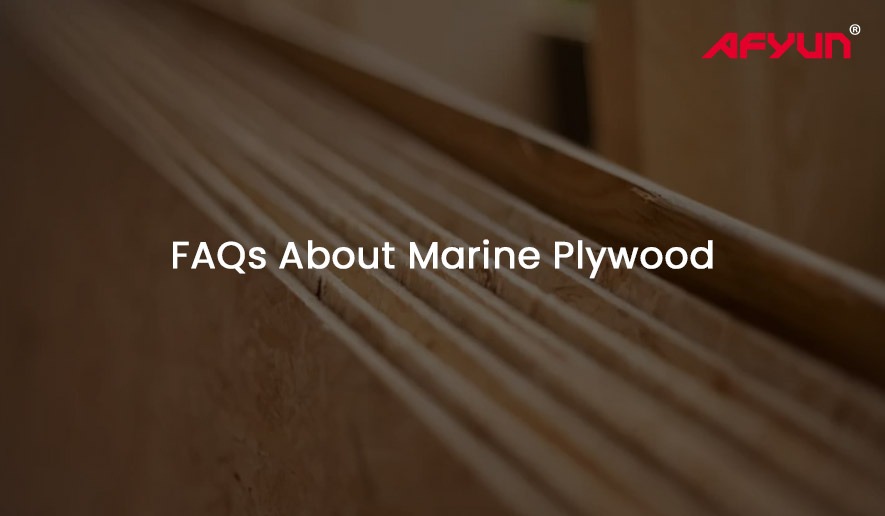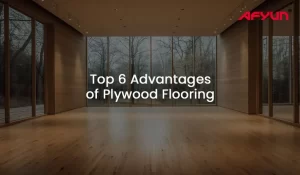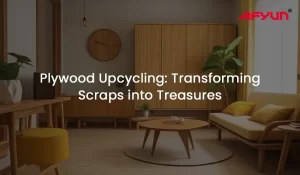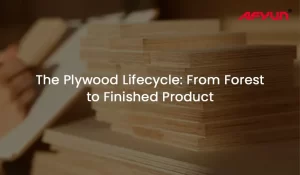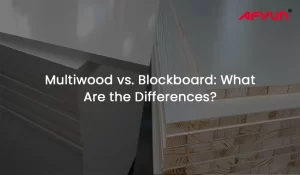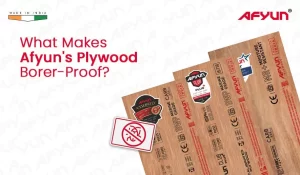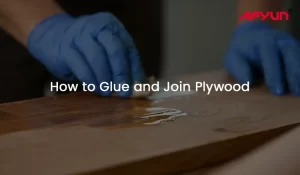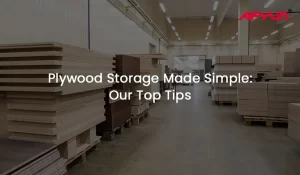- What’s Marine Plywood?
Marine plywood is a type of plywood ideal to use in marine environments. What’s more, It is highly durable, water-resistant, and possesses excellent strength and stability.
- Is Marine Plywood Good?
Yes, marine plywood is of high quality and is perfect for various applications, especially in wet or humid conditions. Furthermore, Its exceptional strength, resistance to water, and durability make it a reliable choice for marine construction and other demanding projects. However, the quality may vary according to the grades of Marine Plywood.
- Why Marine Plywood?
Marine plywood is popular for its superior performance in wet and humid environments. It offers excellent resistance to moisture, decay, and rotting, making it ideal for applications where other types of plywood may not be suitable or long-lasting.
- What Makes Marine Plywood Different?
What sets marine plywood apart is its construction and special adhesive formulation. Its manufacturing process involves bonding high-quality veneers with a waterproof adhesive. This ensures better strength, durability, and resistance to water.
- Is Marine Plywood Strong?
Yes, marine plywood is popular for its strength and structural integrity. Because it has the strength to withstand heavy loads, it’s suitable for applications requiring robust and reliable construction materials. When compared with other plywood, Marine Plywood stands out in this aspect.
Want more comparison? Find them below.
- Marine Plywood Vs Multiwood
- Marine Plywood Vs Gurjan Plywood
- Marine Plywood Vs Laminated Plywood
- Difference Between Marine Plywood and Ordinary Plywood
- How To Join Marine Plywood?
You can join Marine plywood using various methods, including screws, nails, or glue. Another important point is that it’s essential to use appropriate fasteners and adhesives that are compatible with the plywood’s water-resistant properties to ensure a strong and secure connection.
- Will Marine Plywood React With Aluminium?
No, marine plywood will not typically react with aluminium. However, it is important to ensure that there is no direct contact between dissimilar metals to prevent potential galvanic corrosion. For that, use suitable insulation or protective barriers.
- Will Marine Plywood Rot?
Marine plywood is highly resistant to rotting due to its waterproof properties. However, prolonged exposure to excessive moisture or incorrect installation can compromise its integrity and lead to rotting over time. Proper maintenance and protection are crucial to prevent rot.
- Can Marine Plywood Get Wet?
Marine plywood can withstand exposure to water and moisture. It is highly water-resistant and can tolerate wetness without significant damage. This is why it’s sometimes called “Waterproof Plywood“. However, it is still important to avoid prolonged or excessive exposure to water to maintain its optimal performance and longevity. Click here to read more.
- Can Marine Plywood Be Painted?
Yes, you can paint Marine Plywood. Before painting, prepare the surface properly by sanding and cleaning it to ensure better adhesion of the paint. Using high-quality exterior-grade paints or marine-grade paints will help protect the plywood and enhance its appearance.
- Can Marine Plywood Be Used For Decking?
Yes, marine plywood is commonly used for decking applications, especially in marine or outdoor environments. Its water resistance, durability, and strength make it a suitable choice for constructing sturdy and long-lasting decks.
- Does Marine Plywood Expand And Contract?
Like any wood product, marine plywood can expand and contract with changes in temperature and humidity. However, compared to standard plywood, marine plywood has a reduced tendency to expand and contract, thanks to its construction and waterproof adhesive.
- Does Marine Plywood Absorb Water?
Marine plywood has minimal water absorption due to its waterproof adhesive and veneer quality. It is engineered to resist water penetration, ensuring that the plywood retains its strength and structural integrity even when exposed to moisture.
- Can Marine Plywood Be Stained?
Yes, marine plywood can be stained to enhance its appearance. However, it is essential to choose stains specifically designed for exterior or marine use, as they offer better protection against moisture and UV damage. Proper surface preparation and application techniques are also important for achieving satisfactory results.
- Can Marine Plywood Be Used For Flooring?
Yes, marine plywood is a suitable choice for flooring, especially in areas prone to moisture or high humidity. Its water-resistant properties help prevent warping, swelling, or decay, making it an excellent option for damp environments like bathrooms, kitchens, or basements.
- Does Marine Plywood Delaminate?
Marine plywood is less prone to delamination compared to regular plywood. Its construction and waterproof adhesive provide better bonding and resistance to separation between the layers. Thus, it ensures long-term stability and durability.
- Does Marine Plywood Have Formaldehyde?
Marine plywood manufactured according to industry standards should not contain formaldehyde. However, it is always advisable to check the product’s specifications and certifications to ensure compliance with formaldehyde emission regulations and standards.
- What Is Marine Plywood Used For?
Marine plywood finds application in various industries and projects, including boat and shipbuilding, dock and pier construction, outdoor furniture, exterior cladding, cabinets, and also other projects where moisture resistance and durability are essential.
- What Is Marine Plywood Made Of?
Marine plywood is typically made of durable wood veneers, such as tropical hardwoods or Douglas fir, which are bonded together using a waterproof adhesive. The type of wood species used may vary depending on the manufacturer and specific requirements.
- What Is Marine Plywood Treated With?
Marine plywood is usually treated with water-resistant preservatives or chemicals to enhance its resistance to decay, rot, and fungal growth. The specific treatments applied may vary among manufacturers. Hence, it’s advisable to check the product specifications for detailed information.
- Does Marine Plywood Expand And Contract?
Yes, marine plywood can expand and contract to some extent in response to changes in temperature and humidity. However, due to its construction and waterproof adhesive, marine plywood demonstrates reduced expansion and contraction compared to standard plywood.
- Is Marine Plywood Termite Proof?
Marine plywood is not inherently termite-proof. However, some manufacturers may apply additional treatments or incorporate termite-resistant properties during the manufacturing process. It’s essential to check the product specifications or consult with the manufacturer regarding its resistance to termites.
